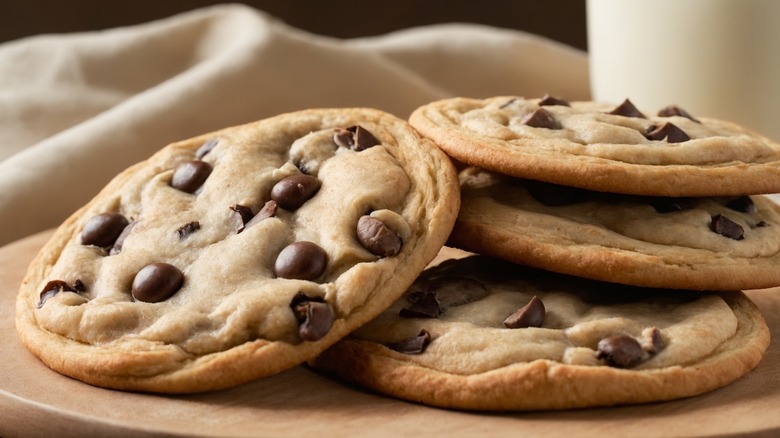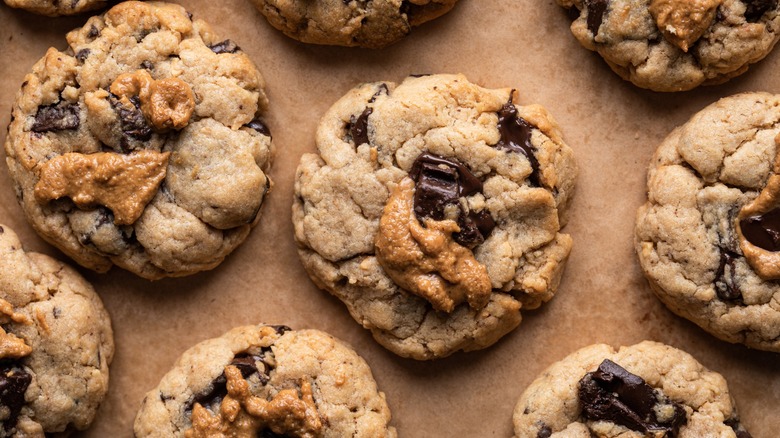Baking Soda And Powder: Which Leads To Better Cookies?
If you were to clean out your entire pantry and restock it from scratch, there's a really solid chance that both baking soda and baking powder would make the shortlist of essential ingredients needed to replenish your shelves' reserves. Both baking soda and baking powder are key ingredients for many of our favorite recipes, and can also serve other utilitarian purposes in certain situations. But their true strength lies in their names — they're great ingredients to use for baking. In fact, both substances are similar enough that you could swap one for the other if you had to. This begs the question, then: which one would win in a head-to-head when used for one of the most beloved baked goods ever? Specifically, which ingredient makes better cookies?
The real answer is to say "it depends." Each ingredient will yield you different results, and their final product will appeal to different people depending on what kind of cookie they're making and how they like them. But that's an unsatisfying response, so let's dive into what you expect from your cookies when using baking soda and baking powder, respectively, so you can make that call for yourself.
Two ingredients that give two kinds of cookies
Baking soda and baking powder are closely related to each other (baking powder is essentially just baking soda that's already been exposed to an acid), but they'll still give you two different kinds of cookies when you use one over the other. Baking powder, by virtue of it working as a leavener, will incorporate more airiness and fluffiness in your cookies. The baking powder will help your cookies release carbon dioxide while they're cooking, leading to taller cookies that are quite light (in texture and in hue). This lightness can quickly give way to overly-crumbly cookies, though, which might not appeal to your own cookie preferences. In which case, you might want to take a look at baking soda.
Baking soda is a multipurpose ingredient that can be used for anything from cleaning to tenderizing steaks, but how does it fare when used in cookies? Baking soda gives cookies that are flatter, denser, and darker than their counterparts. Baking soda elongates the cookies' setting process, allowing them to spread. It also helps proteins bond more tightly, creating a denser, chewier cookie. And baking soda also facilitates the Maillard reaction (the process by which cookies, meat, and even beer get their brown color). So baking soda is better if these are the qualities you look for, and baking powder is best if you prefer the opposite. Some cookie recipes even use both, so as long as your ingredients are fresh, you can give that a shot and experience the best of both worlds.

